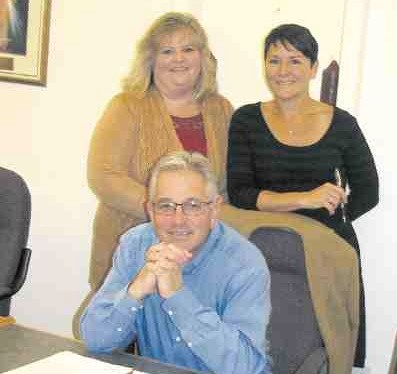Parent-teacher conferences. A thing of the past for Light of Christ Catholic School parents, teachers and students.
The new format for finding out how your child is doing at school is the student-led conference.
The first such conferences will be held Oct. 23 and 24 from 6 to 9 p.m. at John Paul II Collegiate, the division's high school. The elementary school conferences will be in November.
Kelvin Colliar, superintendent of school operations, says parent-teacher conferences have often, in the past, been about behaviour. In this new format, related to the outcomes-based shift in curriculum and assessment, behaviour issues will be dealt with apart from the conference. The conference, he underlined, is about how the student is doing, and how the student is playing a larger role in his or her own education.
Superintendent of Curriculum and Instruction Karen Hrabinsky says parent-teacher conferences have always been missing something - the student.
"It's almost like it's being 'done to them,'" says Hrabinsky.
Why the change?
In the traditional parent-teacher interview, students have played a minimal role, and it may lead parents to focus on their child's weaknesses, rather than strengths. In addition, with the old report card format that accompanied the traditional parent-teacher interview until recently, student self-evaluation, comments and reactions about their learning was missing.
Hrabinsky explains the student-led conferences will see parents in the classroom being shown by their children what they have accomplished, and where their education is going next. The teacher will be in the classroom and available.
The student-led conference is expected to show parents and students that their opinions and experiences are valued by the teacher and to empower students to take responsibility for their learning. It will give the parent and teacher a chance to hear the students reflect on their progress in their own words.
It also gives parents the opportunity to see the teacher and student interact and provide the teacher with insight about parent-child relationships/home structures.
Colliar points out there is overwhelming research that indicates student involvement and accountability in their own education is a positive influence on learning.
He quotes author John Hattie's list of 138 influences related to achievement showing the top influence to be self-reported grades.
"It works for all kids," says Colliar.
He added, "We don't do anything that isn't research-based."
Parents have already been introduced to new report cards. Report cards formerly gave numerical grades for each subject. The numbers themselves meant very little, as there were few standards provincially for what a certain number might mean, says Colliar.
The new curriculum, which is expressed in outcomes, has resulted in grades on the report cards given on a per-outcome, rather than a per-subject basis, and defined on a four-point scale. Because the grades are given on a per-outcome basis, they can show which concepts a student is excelling in and which a student is doing poorly in. They also compare students not to their peers, but to the standards of the province.
Grade 10, 11 and 12 report cards include percentages for the purposes of moving into post-secondary education.




